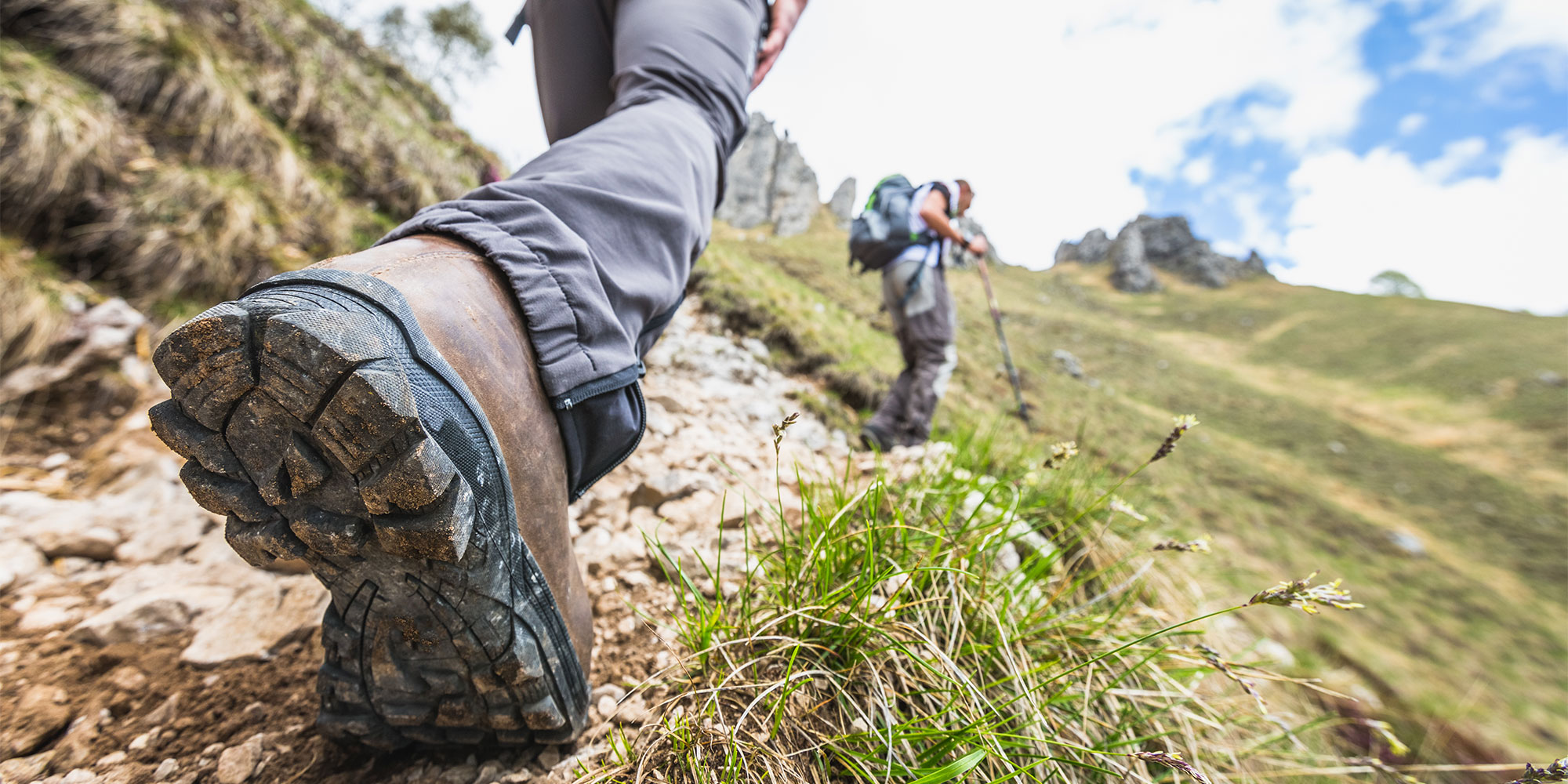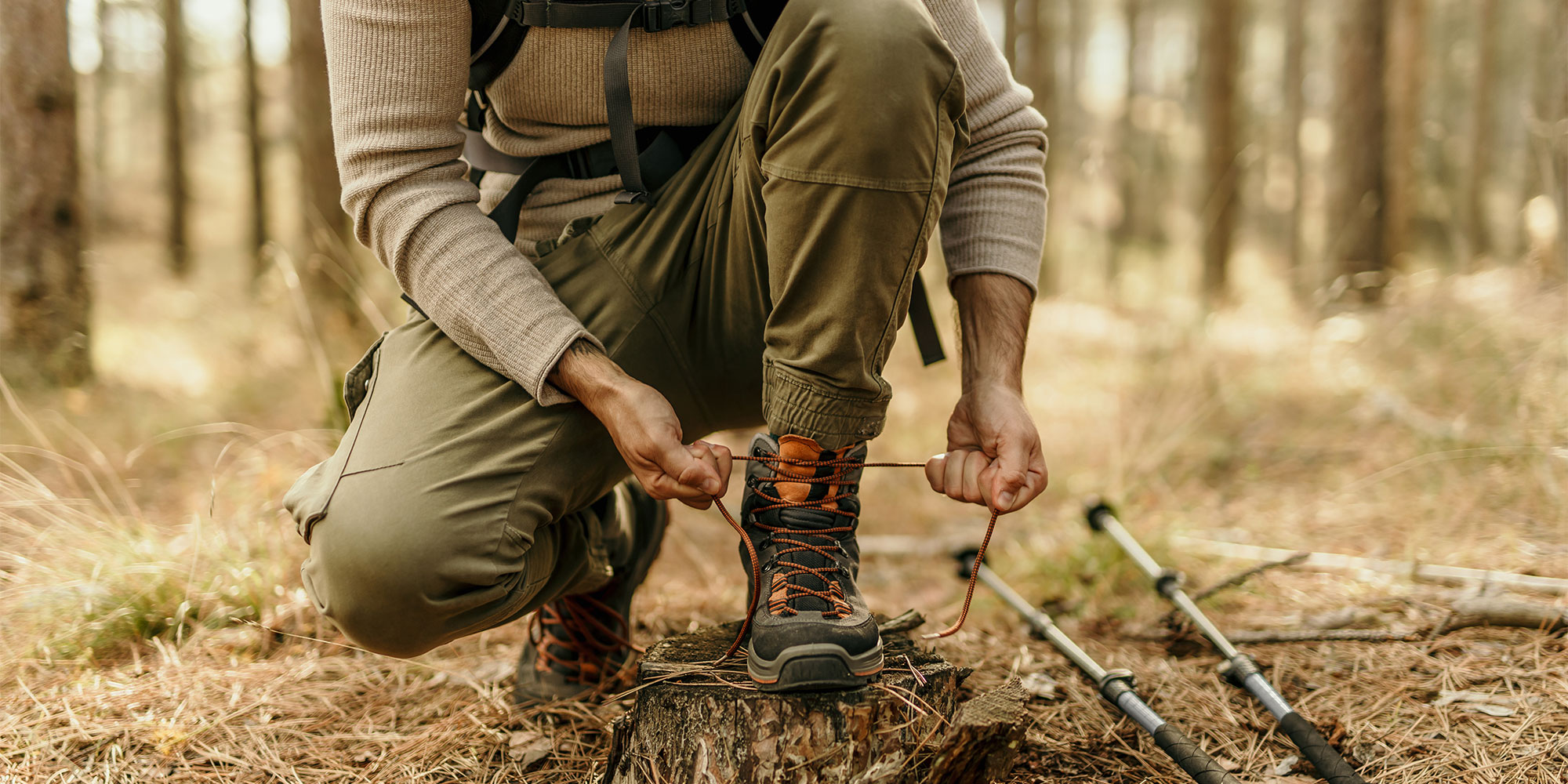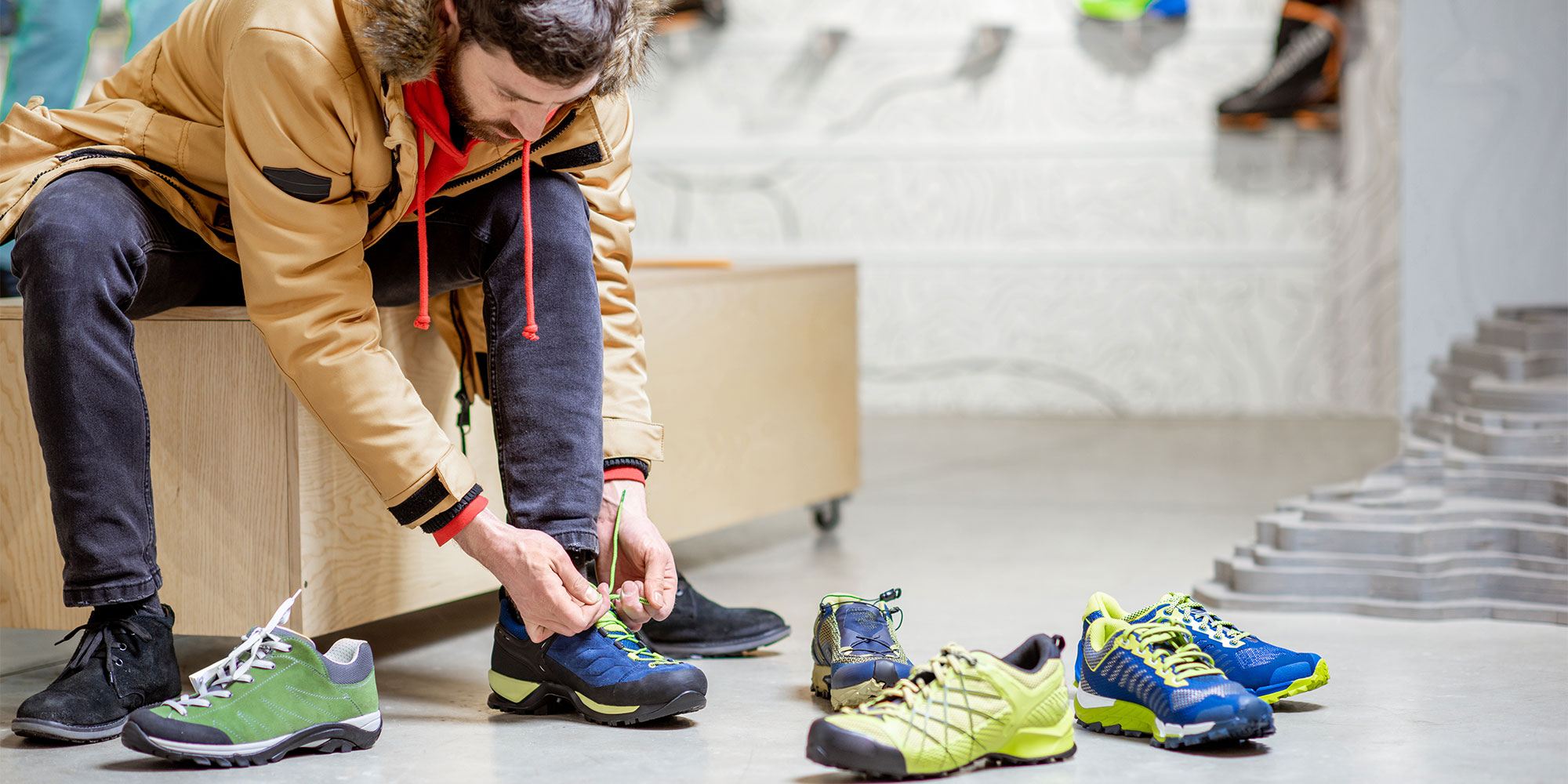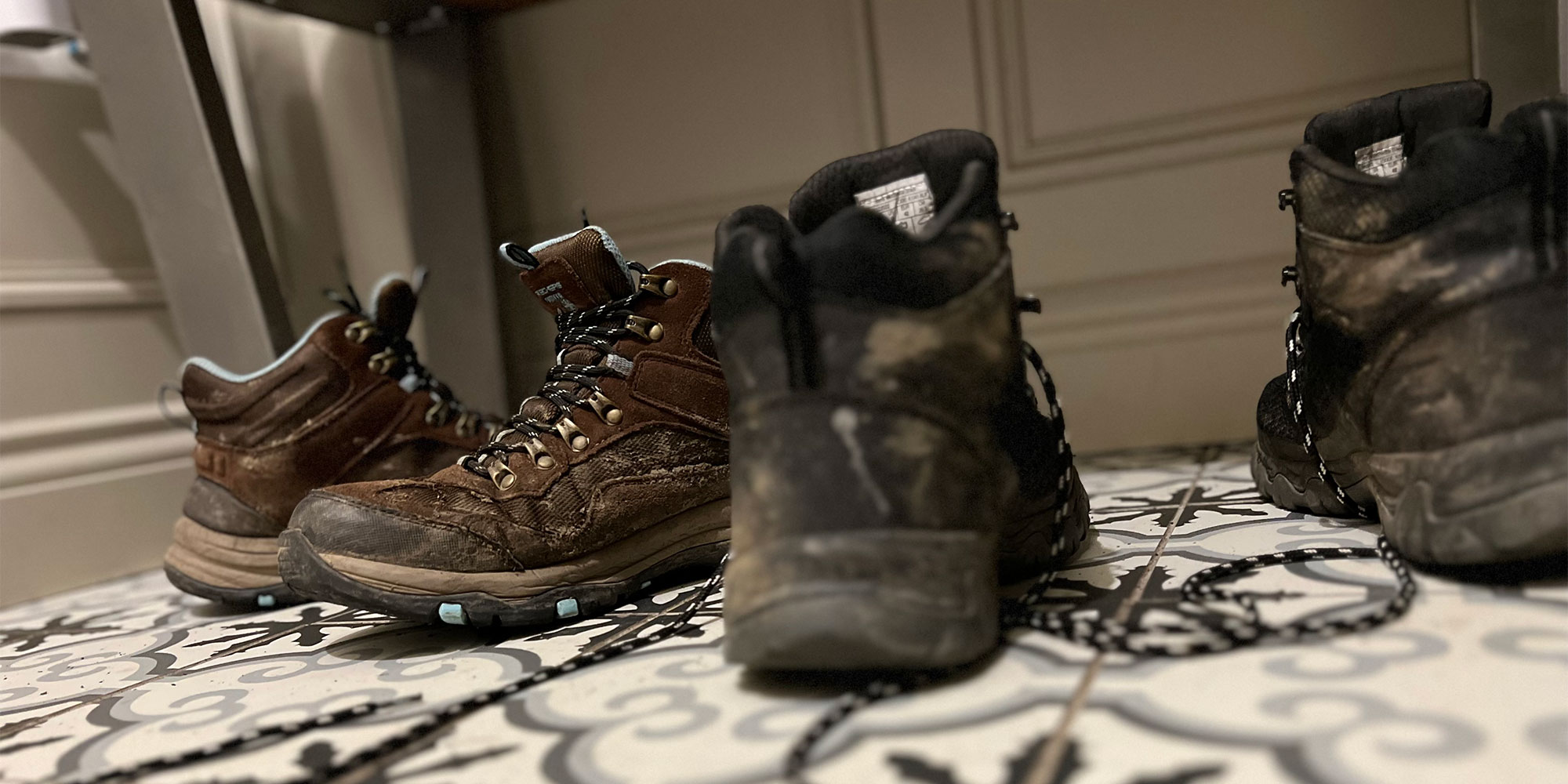
Get a year of super-useful advice
Who to book with, how to get the best deals plus inspiring destination ideas from the experts, for only £49 for the year.
Join Which? TravelBy clicking a retailer link you consent to third-party cookies that track your onward journey. This enables W? to receive an affiliate commission if you make a purchase, which supports our mission to be the UK's consumer champion.

Choosing the wrong pair of walking boots could leave you with soaked or sweaty feet. That's why we asked more than 2,500 people about their experiences with hiking footwear so that you can pick a brand that will keep you comfortable whatever terrain you're marching through.
Walking boots need to be more than just water resistant and breathable to impress; to avoid throbbing feet after a hike, flexibility and comfort are essential.
The best picks tick all the boxes and - for the first time ever - we've endorsed the companies providing the best boots, naming them Which? Recommended Brands (WRBs). See below for further details on WRBs.
Good boots are an investment, and our survey respondents often spent more than £150 on a pair. But we've found a superb brand selling footwear costing less than £100, and another where owners paid £63 on average - a fantastic pick for casual walkers.
For more expertly researched destination ideas and unbiased travel advice and recommendations, subscribe to Which? Travel

Who to book with, how to get the best deals plus inspiring destination ideas from the experts, for only £49 for the year.
Join Which? TravelWhy you can trust our reviews of walking boot brands
Expert analysis
Most reviewers make their judgement based on their individual preferences. Instead, we evaluated the quality of 29 brands based on the experiences of 2,508 customers.
Which? Recommended Brands
Our Which? Recommended Brands are the best of the best. Brands have to meet strict criteria including high customer ratings, and uncompromising checks on product guarantees/ warranties, and returns policies.
| 92% | £196 | ||||||||||
| 89% | n/a | ||||||||||
| 84% | n/a | n/a | n/a | ||||||||
| 83% | n/a | ||||||||||
| 83% | £181 | ||||||||||
| 83% | £153 | ||||||||||
(192) | 80% | £110 | |||||||||
(158) | 80% | £103 | |||||||||
(33) | 80% | n/a | n/a | ||||||||
(65) | 79% | £119 | |||||||||
| 79% | n/a | ||||||||||
(124) | 79% | £98 | |||||||||
(36) | 79% | n/a | n/a | ||||||||
(105) | 79% | £136 | |||||||||
(67) | 79% | £106 | |||||||||
(47) | 78% | £111 | |||||||||
(70) | 78% | £63 | |||||||||
(56) | 75% | £109 | |||||||||
(54) | 75% | £81 | |||||||||
(67) | 75% | £76 | |||||||||
(36) | 74% | n/a | n/a | ||||||||
(132) | 73% | £59 | |||||||||
(42) | 72% | n/a | |||||||||
(78) | 72% | £69 | |||||||||
(47) | 71% | n/a | |||||||||
(41) | 67% | n/a | |||||||||
(162) | 67% | £65 | |||||||||
(80) | 67% | £64 | |||||||||
(53) | 67% | £74 |
Survey conducted in May 2025 based on responses from 2,508 members of the Which? Connect panel who own 2,993 pairs of walking boots bought in the past five years. ‘n/a’ means not enough data to provide information. Average price paid = mean price members said they paid. Customer score based on satisfaction and whether members would recommend.

As a travel expert, I recommend not going too cheap when buying your walking boots. It's important to choose a pair made of premium materials that keep your feet protected from the elements, while allowing them to breathe and move naturally to avoid injuries. If you're planning to only walk in easy and dry conditions, you can save money by choosing a pair of walking shoes instead. Walking shoes from the highest-rated brand in our latest research cost customers just £42 on average.
Check out our guide to the best walking shoe brands.

Verdict: Specialist boots you can count on
Customer score: 92%
Average price paid: £196
Pros
Cons
Yorkshire-based Altberg tops our table. Customers raved that its boots endure whatever the weather throws at them, and that their excellent grip gets you over difficult terrain without compromising on comfort or fit.
Although it might be the most expensive brand in our survey, owners of Altberg boots think they're worth it, as shown by the four-star value rating. If you do decide to invest, rest assured that Altberg will repair them for around half the price of a new pair if you ever wear them out.
Explore its styles direct from Altberg or at Taunton Leisure.
Other Which? Recommended Brands of walking boots

Verdict: A lot for your money
Customer score: 79%
Average price paid: £98
Pros
Cons
Many Grisport customers loved the lightweight build of their walking boots, and one told us that their boots didn't need to be worn in, as they were comfortable from the very first wear. With strong scores and a reasonable price, it's no wonder the brand secured a four-star rating for value for money.
If you go cheaper, you may find yourself compromising on features such as breathability and grip.
Pick up a pair from Grisport, at Mountain Warehouse, at Cotswold Outdoors or at Decathlon.

Verdict: For leisurely strollers
Customer score: 79%
Average price paid: £63
Pros
Cons
On average, the Peter Storm customers we surveyed paid a third of what Altberg customers did for their walking boots. However, for the price, it seems they had to compromise on some flexibility (how well the shoe can adapt to your natural step) and breathability (to keep your feet cool and avoid feeling sweaty.)
But there was a lot to like, and Peter Storm achieved respectable scores in our survey. Most owners agreed that their boots were typically comfortable and fairly durable without feeling too rigid. One customer praised how their shock absorbency ensured their knee problems weren't exacerbated.
You can shop lots of Peter Storm styles at Blacks, Millets or at Go Outdoors.
Pros: Exceptional comfort and flexibility; Top-notch fits; High level of water resistance.
Cons: Some styles cost as much as £300.
Available at multiple retailers, including Zamberlan, Absolute Snow, Hill and Dale Outdoors and Tiso.
Pros: Versatile fits; Praised for build quality; Widely available.
Cons: Some styles cost upwards of £300.
Available at multiple retailers, including Hanwag, Alpine Trek and Cotswold Outdoor.
Pros: Great protection from the elements; Comfortable; Flexible for easy walking.
Cons: A pricey brand when not discounted.
Available at multiple retailers, including Lowa, Absolute Snow and Cotswold Outdoor.
Pros: Reliable comfort; High-quality materials; Great water resistance.
Cons: 3-star rating for value.
Available at multiple retailers, including Meindl, Cotswold Outdoor and Hill and Dale Outdoors.
Pros: Supportive; Fit well; Long-lasting.
Cons: 3-star rating for value.
Available at multiple retailers, including Scarpa, Cotswold Outdoor and Go Outdoors.

In general, walking boots are made from materials that are tougher than walking shoes. Their sturdy build, which covers your ankles, gives your foot more support, and they have a higher level of water resistance than walking shoes. This makes them great for giving you grip over challenging and uneven terrains, as well as through mud and wintry conditions.
Walking shoes are designed to be more comfortable than boots when walking in easier and drier conditions. They tend to be lightweight and flexible, and look and feel more like a trainer on your foot. Their water-resistant materials should protect your feet from a light shower, but they'll likely get wet in a downpour. More than 2,600 people told us about the 31 walking shoe brands they've owned in Best walking shoes 2026.
Whichever you opt for, the footwear should always feel comfortable from the first try-on. And don't compromise on durability if you want them to last - check the durability ratings in our table.

It's possible that you might need to size up in walking boots to get the right fit, especially if you plan to wear thick socks. However, they should never feel too big, otherwise they could rub and cause nasty blisters.
The best fit should feel snug but not tight. Make full use of the laces to tighten the boots across your feet, and leave around 1.2cm (half an inch) of space in front of your toes. This gives plenty of room for your feet to swell slightly by the end of your hike, without needing to go up a full size. Make sure you try them on with your walking socks before you commit to buying them.